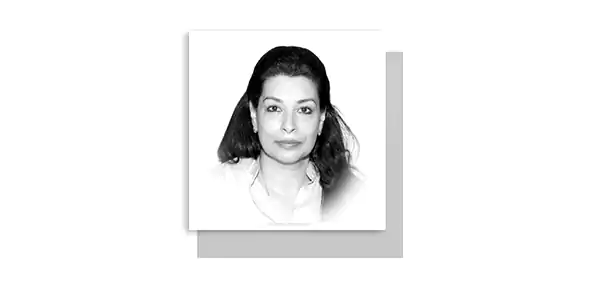WHEN we think upon the values ofthe nation that is Pakistan, what first comes to mind? Unity, faith and discipline is what the Quaid tried to inculcate in us. But he had very little time within which to transform these words into actionable mantras for the newly formed state. My grandfather, Quaid-i-Millat Liaquat Ali Khan, practiced the values of inclusion and equality. He refused to take any evacuee property until each and every refugee had been given his or her rightful share. But he was also cut down early, and the vacuum in leadership after him meant that none of these values were owned or understood, either by civilians or bureaucrats.
The progress of Pakistan has been marred with decline. Every successive decade has brought with it a deepening of the malaise. We think back to the period of the 1960s and ‘70s as progressive periods in our history, but we should question ourselves. The values that were taking hold then were not those that I have mentioned. Self-interest, authoritarianism and exclusion (actions which I believe led to the division of the country in 1971) set the tone for the type of values that were to be practised.
While historically, great leaders have set the values for their societies – who comes to my mind most immediately is Nelson Mandela – all groups of people and societies also have some fundamental values that in a small way define who they are. The folkloric tales of Robin Hood define the ethos of noblesse oblige – he comes from a noble family but takes up the cause of the most downtrodden. The Mullah Nasruddin stories are Suficin nature and yet simple and funny enough to appeal to adults and children across the Muslim world. In them are nuggets of gold that if understood, bring us into a more self-searching mode. Turkish society has been enriched by the writings of Maulana Rumi and Mullah Nasruddin.
Trying to identify the fundamental values of Pakistanis, I find that it is often outsiders who give us glimpses as to what is true to our nature. Undeniably our diversity of peoples, cultures, traditions and terrains makes it difficult to define us as one. And yet, we have been one state for the past 77 years. Surely there is some pride in being Pakistani. We see it on the sports arena especially during cricket tournaments. But otherwise, we, as a society, are not exposed to many examples of national unity.
Recently, I was discussing Pakistani and Turkish society with a Turkish friend, who has been living here for a few years. She realised that Pakistan was well behind Turkey in terms of the lack of freedom available to women. She still found it difficult not seeing enough women out in public, and at the way men stared at her on her daily walks. But she also said something that made me both proud and hopeful. She talked about the kindness of Pakistani people – whether it was the guards on her walks who let her take shelter in their cabins during heavy rains, or friends she had made, or people she did business with. Across the board she found Pakistanis to be kind.
Perhaps a beginning at cementing our values can be made from the daily acts of kindness that we see around us. And promulgating this kindness across all that we do. Words speak louder than actions, which means that walking this talk would necessitate that we think before we speak, and that we especially think through our actions. In a socio-economic environment where the suffering is growing daily, and staggering proportions of Pakistani men, women and children are food insecure, and with few options to improve their circumstances, we need, more than ever, to be kind.
A caveat, however. Kindness does not have boundaries. One cannot be kind to a beggar and then go kick a dog. When it comes to animals – those ‘bezabaan’ who are often at the mercy of our cruelty and viciousness – Islamic teachings give more than enough examples of how humans should behave. God has created everything, so how can we disrespect any of His creation.
—The writer is an independent development professional and impact adviser with over 25 years of experience designing and managing programmes to improve people’s lives.
Samia Liaquat Ali Khan








